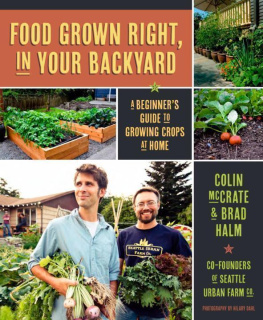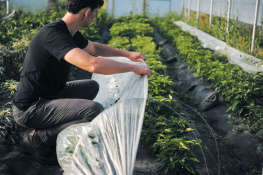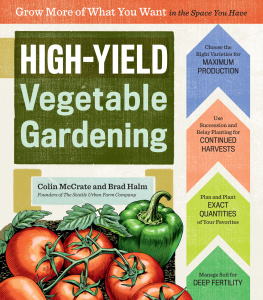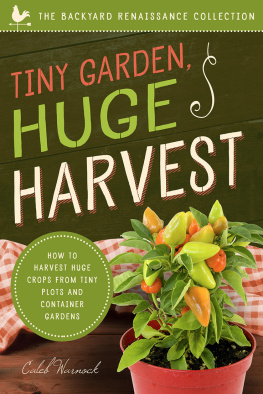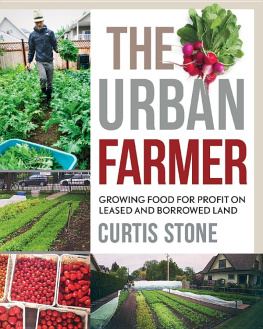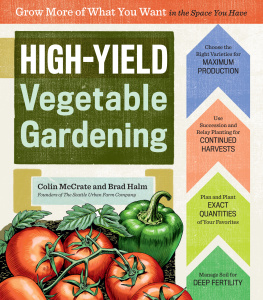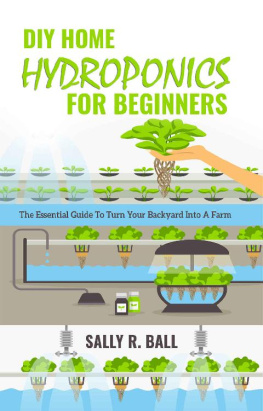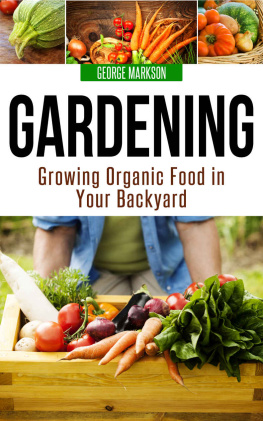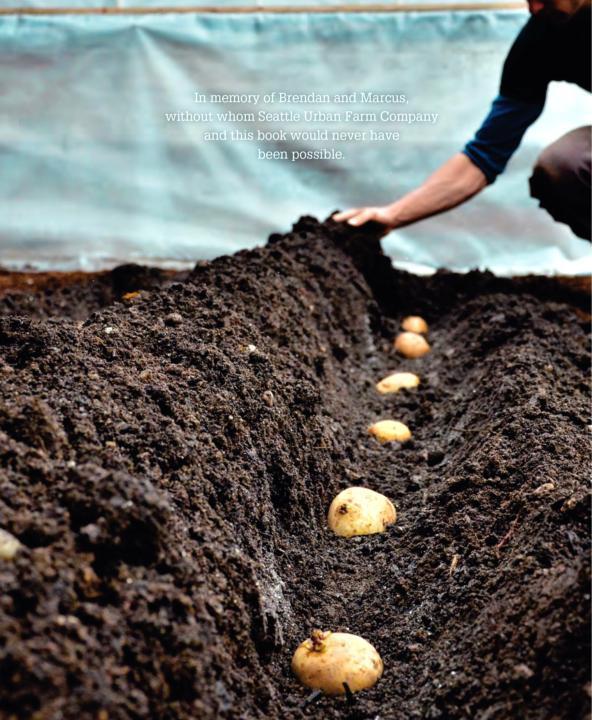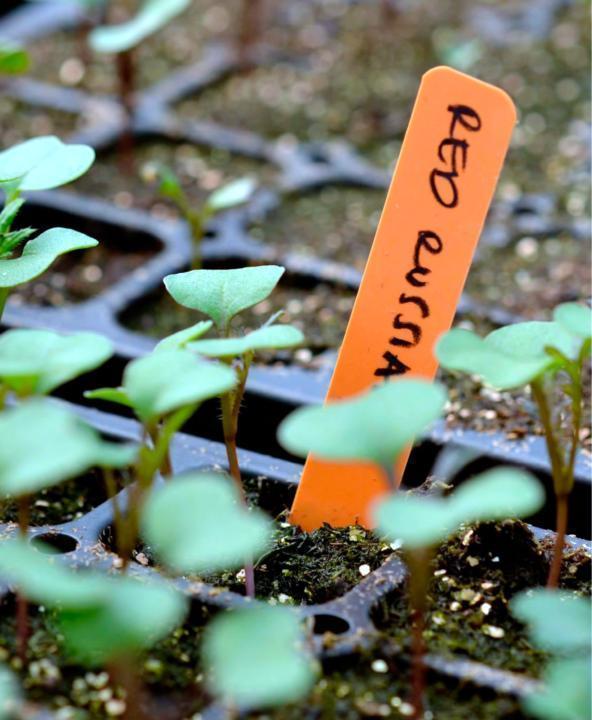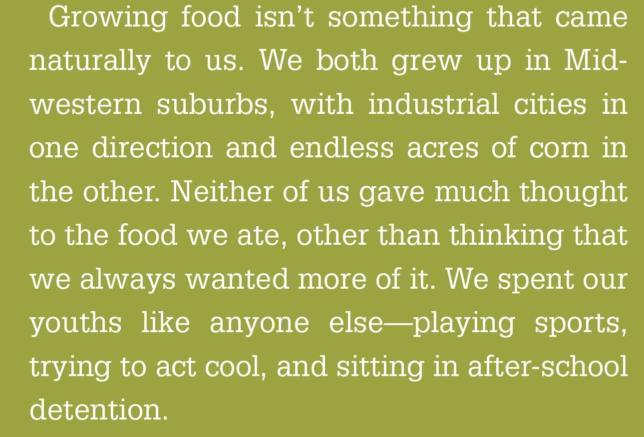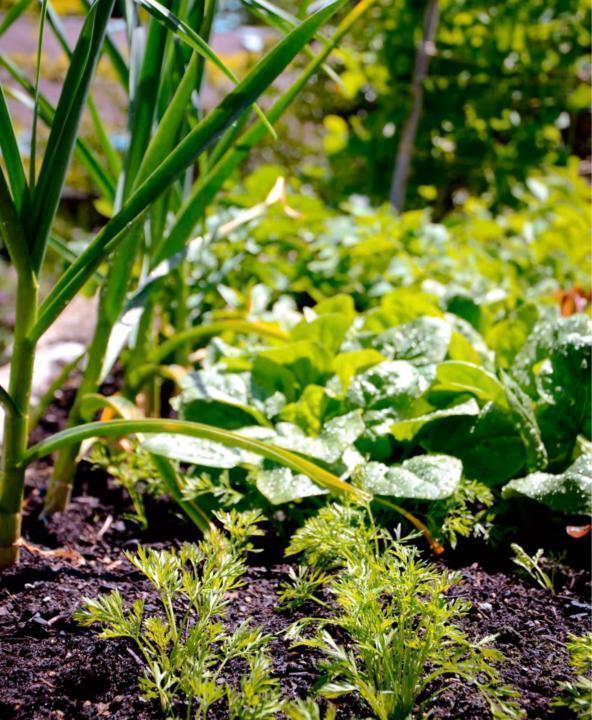What Do You Want from Your Garden?
It wasn't until college that we got acquainted with food in its natural setting. We met at Denison University while working at the Homestead, a vegetable garden located off campus and run entirely by students. After we'd spent most of our college years searching for a meaningful vision for our lives, the Homestead finally provided us with a purpose. That purpose was growing: growing long hair, growing long beards, and growing organic vegetables.
Gardening at the Homestead was a haphazard affair to say the least-we probably killed twice as many plants as we grew. But despite the many factors limiting our success (most of which we would prefer to keep off the record), in time something dawned on us: Growing food was an amazing experience. We could only imagine how amazing it would be if we actually knew what we were doing!
Once out of school (yes, we both graduated), we went our separate ways. But both of us pursued agriculture and studied under skilled professional growers. Over the years, we became immersed in farming life and learned organic crop management through hands-on experience. In 2007, we reunited to start Seattle Urban Farm Company, a business that helps people learn to grow their own food at home.
When we started the company, we had no idea whether the business would succeed. Sure, we knew how to grow vegetables, but could we help people learn to do it in their own yards? Would anyone hire us to find out? Would we have to cut our hair?
Somewhat surprisingly to us, we had great results with our first few customers. After that, word got around quickly, and the company grew faster than we could have imagined. Over time, we've expanded to work with restaurants, schools, and businesses, although the majority of our clients are still people who want to grow food at home.
Since Seattle Urban Farm Company's founding, we've guided hundreds of novice home farmers through their first growing seasons. We've learned that most people feel intimidated at the thought of growing vegetables, because they don't know where to start. Our approach is to simplify the process. Once that happens, it isn't long before our customers realize how easy and rewarding growing their own food can be.
This book walks you through that same process, helping you plan, plant, and maintain your garden in a simple, straightforward way that maximizes your chances of success from the very beginning. We're certain that if you start small, choose only a handful of your favorite crops, and spend only the amount of time that's practical for you, you will enjoy your gardening experience and produce even better results than you expected.
You don't have to study with professional growers for years, as we did, to be a successful gardener. This book distills our years of food-growing and garden-building experience into an easy-to-understand guide for new backyard farmers.
Every new gardener has a different reason for getting started. Some want a more nutritious diet, and others want to save money on grocery bills. Some are serious cooks who have discovered that fresher food tastes better, while others are suspicious of a food system that recalls large quantities of vegetables every year because of contamination. Many parents start gardening because they want their children to understand where food comes from. We also know people who see gardening as a way to build community and meet their neighbors, or who want to spend more time outdoors, or who just think gardening is fun.
Regardless of their original intention, we find that, as people become more involved in growing food, they start to embrace all of those ideas. Seeing that transformation is one of the things we really love about our job. We hope you too will experience all the benefits of gardening, and that you'll find the simple, intangible joy that can only be experienced when you "grow your own."
All of the information in this book is based on organic farming and gardening principles. Organic growers do not use chemical fertilizers, pesticides, or herbicides. Instead, they use compost and other natural amendments to build healthy soil. Organically managed gardens can grow beautiful, delicious crops and help preserve and restore our environment.

